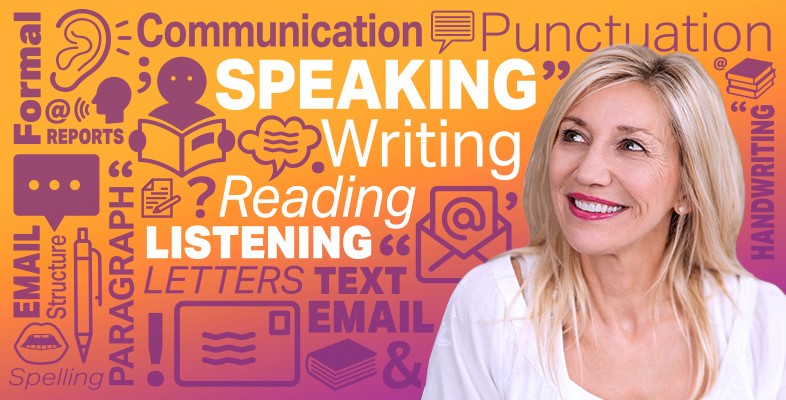2.2 Tone
In relation to language, tone is the mood or feel of something that is said or written. The formality of language affects the tone. As noted earlier, you usually speak formally and politely when answering the phone, when at work or when talking to someone you don’t know. But being overly formal can become rude in certain situations. Speaking too formally to a friend in the pub would be out of place and might be considered rude.
It’s usually quite easy to tell the difference between formal and informal language. Formal language often uses longer words, like ‘depart’ instead of ‘go’ and ‘commence’ instead of ‘begin’, and sometimes a less friendly tone – ‘We regret we cannot assist you’, not ‘I’m sorry I can’t help’.
Activity 15 Matching formal and informal
1. Match the informal word to the formal word that means the same.
Two lists follow, match one item from the first with one item from the second. Each item can only be matched once. There are 6 items in each list.
-
go down
-
tell
-
ask
-
saw
-
at the end
-
go
Match each of the previous list items with an item from the following list:
a.descend
b.report
c.request
d.observed
e.depart
f.finally
- 1 = a,
- 2 = b,
- 3 = c,
- 4 = d,
- 5 = f,
- 6 = e
2. Now identify the formal phrase in each of the following pairs. Drag the relevant phrase to ‘Formal’ or ‘Informal’.
Can you explain why one is formal and the other informal? Is there one word in each phrase that shows this?
Two lists follow, match one item from the first with one item from the second. Each item can only be matched once. There are 2 items in each list.
-
Could I have a coffee, please?
-
Could you grab me a coffee?
Match each of the previous list items with an item from the following list:
a.Formal
b.Informal
- 1 = a,
- 2 = b
Discussion
‘Please’ is often formal.
‘Grab’ is informal.
Two lists follow, match one item from the first with one item from the second. Each item can only be matched once. There are 2 items in each list.
-
Morning, mate.
-
Good morning, sir.
Match each of the previous list items with an item from the following list:
a.Informal
b.Formal
- 1 = a,
- 2 = b
Discussion
‘Mate’ is informal.
‘Sir’ is formal.
Two lists follow, match one item from the first with one item from the second. Each item can only be matched once. There are 2 items in each list.
-
Can I have a word?
-
We need to discuss this further.
Match each of the previous list items with an item from the following list:
a.Informal
b.Formal
- 1 = a,
- 2 = b
Discussion
‘Have a word’ is informal in this case.
‘Discuss further’ is more formal.
Two lists follow, match one item from the first with one item from the second. Each item can only be matched once. There are 2 items in each list.
-
I don’t feel so bad.
-
I am well today.
Match each of the previous list items with an item from the following list:
a.Formal
b.Informal
- 1 = b,
- 2 = a
Discussion
‘I am well’ is quite formal.
‘I don’t feel so bad’ is informal.
Usually it is obvious when language is formal or informal, but when speaking it is easy to slip into slang without really noticing, such as ‘oh my goodness’ rather than ‘that is surprising’.
Activity 16 Formal situations
Think of situations in which you might have to speak quite formally. See how many you can note down below.
Discussion
You may have thought of some of the following:
- interviews
- presentations
- meetings
- classes/lectures
- work reviews
- 1-1s.
